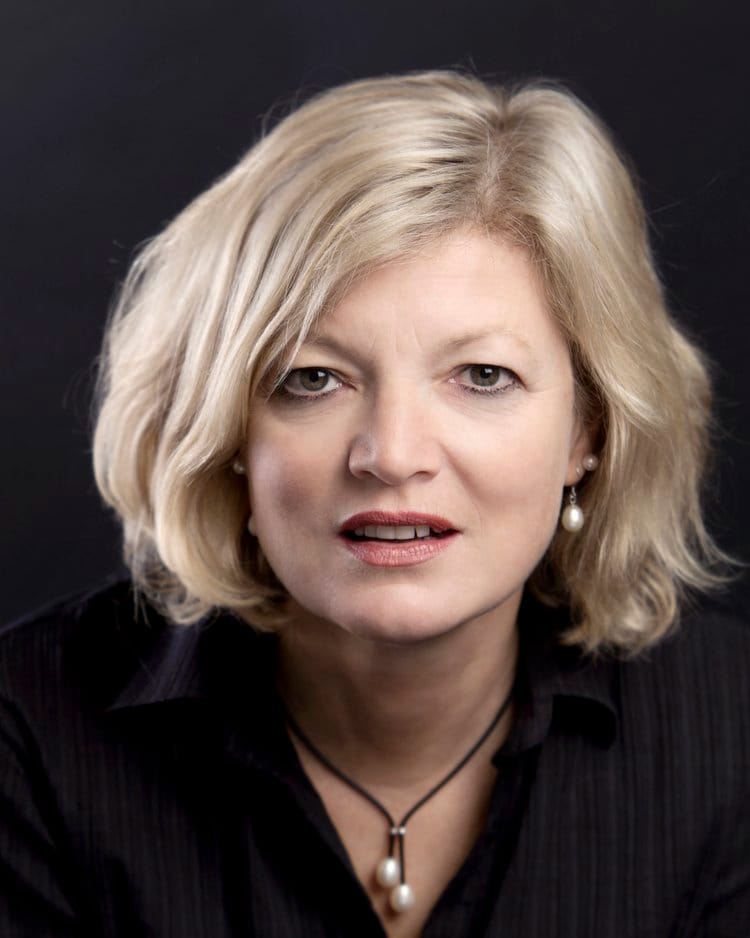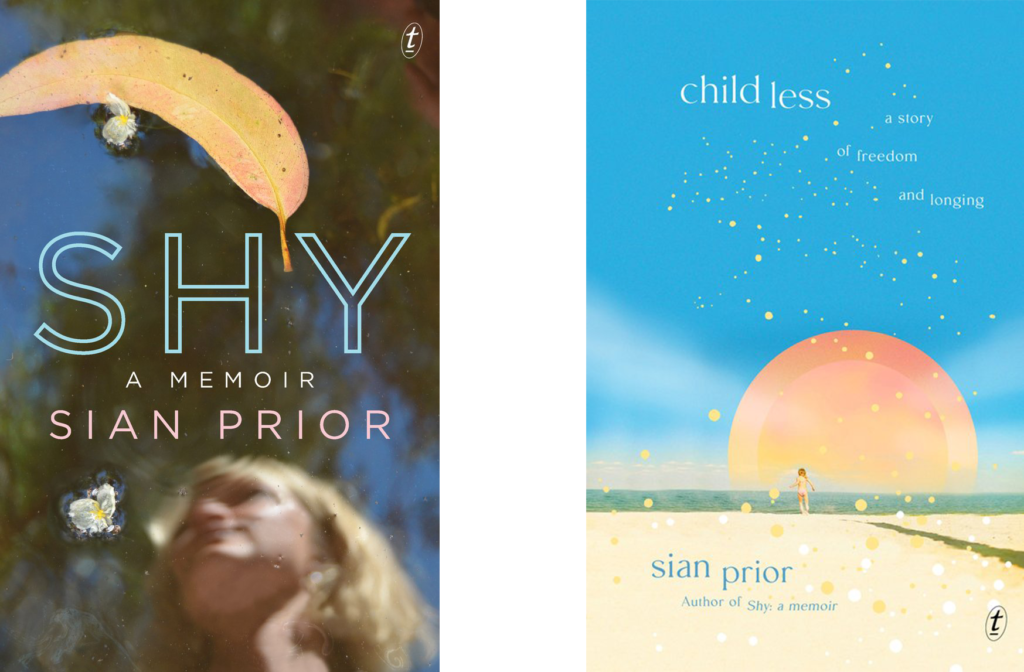
Dr Sian Prior has been a writer and broadcaster for 30 years. She has been published in newspapers, magazines and literary journals. Sian teaches non-fiction at RMIT and runs online courses in creative non-fiction and writing as therapy. She has written two books, Shy: A Memoir (2014) and Childless: A Story of Freedom and Longing (short-listed for The Age Non-Fiction Book of the Year 2022), both published by Text Publishing.
After the release of her stunning second memoir in 2022, Sian spoke with our Writeability Program Manager, Jess Obersby, about her novel approach to chronology, the creative evolutions that took place between the writing of her first and second books, and the necessary ingredients in an engaging memoir.
In Childless, you say you can’t write memories in chronological order or you miss the intersections, the hindsight and insight that creates something like wisdom. How do you decide on the structure of a memoir?
I knew that I didn’t want to employ a traditional linear narrative. Writing the book was a way of processing my experiences and feelings, confronting my grief, and I wanted to be able to reveal how my thinking had changed over the years in relation to the events I describe. For example, when I describe having a miscarriage whilst presenting a live radio program, I wanted immediately to reflect on how baffled I now feel by my own strange stoicism in those terrible hours. So there are many shifting ‘temporal vantage points’ (changes in time) in the memoir which allow me to reveal the insights that come with hindsight.
Your first memoir, Shy ,was published in 2014. What was similar and dissimilar between writing your first and second memoirs?
The second memoir is less informed by research and journalistic techniques than Shy was. Fewer jokes. I wasn’t trying to please the reader in the same ways I can now see the narrator of ‘Shy’ was trying to. The quest in ‘Childless’ was mostly to understand myself better, whereas in ‘Shy’ I was trying also to understand and explain shyness/social anxiety, temperament theory, linguistics theories around small talk, etc. In both books I was exploring the impact of my father’s death by drowning on my life, and again, my views have changed since the first book. I see more clearly now how that early trauma might have influenced so many decisions I’ve made over the decades.
Memoirs, by their nature, are emotionally charged. Childless’ subtitle is ‘a story of freedom and longing’. It must have been a quite painful process, but what brought you joy when writing this book?
To be honest there wasn’t much joy in the writing of it. There was definitely joy in the van-travelling experiences that I describe in the memoir, but there is a layer of grief under everything I recount in ‘Childless’ which made it quite gruelling. I guess I felt confident that the writing was better in the second book, and there was a pleasure in discovering I had learnt a few things, as a writer, in the eight years between the publication of those two books. Like I said, less people-pleasing, more willingness to go to the hardest places with the second memoir.

Assumptions are often made about women who don’t have children, the most unkind one is that the women are selfish. In fact, many are choosing not to have children because climate change has created an unsafe future. You say that perhaps advocating for the protection of the environment is the most important human legacy of all. Do you believe that’s everyone’s responsibility, regardless of whether they have children?
I believe that very strongly. Settler colonialism in this country has involved criminal neglect of Country, of biodiversity protection, of the careful custodianship carried out by First Nations people for over sixty thousand years. We’re leaving the planet in an unholy mess, a mess that future generations – other people’s children and grandchildren – will have to try to clean up. It makes me so angry I don’t know what to do with all my rage. So I write about it. I wanted ‘Childless’ to provoke readers into taking those responsibilities more seriously – to think about that legacy, about how history will view them/us.
I don’t want you to give away all your secrets before the course, but if there’s one piece of advice you’d give to someone writing a memoir, what would it be?
Trust that if you are curious about yourself, readers will also be interested. Curiosity, humility, asking yourself the hard questions, being compassionate towards your past self (or selves), hindsight with insight, these are the necessary ingredients in an engaging memoir.
Can you tell us about what you’re working on currently?
I have an idea for a third book – NOT a memoir! – but I will keep it under wraps until I’ve made more progress with it.
Places are still available in Sian’s long course: Refine Your Memoir. Members of Writers Victoria receive up to 37% off the full price of all clinics, workshops, seminars and courses. Writers experiencing financial and social barriers to developing their skills are encouraged to apply to The Writers Victoria Fund for subsidised attendance at workshops and clinics.
